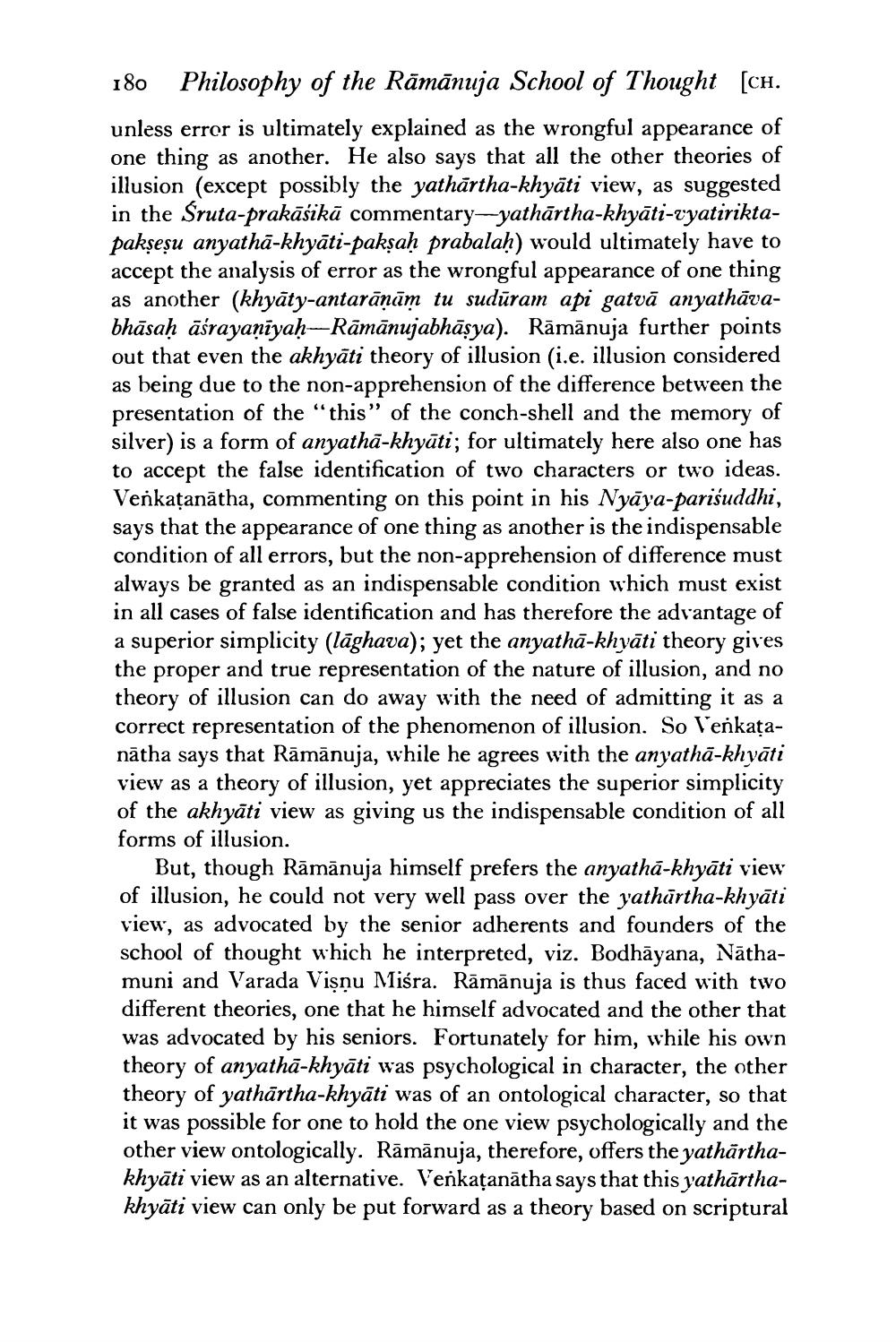________________
180 Philosophy of the Rāmānuja School of Thought [CH. unless error is ultimately explained as the wrongful appearance of one thing as another. He also says that all the other theories of illusion (except possibly the yathārtha-khyāti view, as suggested in the Sruta-prakāśikā commentary--yathārtha-khyāti-ryatiriktapakşeșu anyathā-khyāti-paksaḥ prabalaḥ) would ultimately have to accept the analysis of error as the wrongful appearance of one thing as another (khyāty-antarāņām tu sudūram api gatvā anyathāvabhāsaḥ āšrayanīyaḥ--Rāmānujabhāsya). Rāmānuja further points out that even the akhyāti theory of illusion (i.e. illusion considered as being due to the non-apprehension of the difference between the presentation of the "this" of the conch-shell and the memory of silver) is a form of anyathā-khyāti; for ultimately here also one has to accept the false identification of two characters or two ideas. Venkațanātha, commenting on this point in his Nyāya-parisuddhi, says that the appearance of one thing as another is the indispensable condition of all errors, but the non-apprehension of difference must always be granted as an indispensable condition which must exist in all cases of false identification and has therefore the advantage of a superior simplicity (lāghava); yet the anyathā-khyāti theory gives the proper and true representation of the nature of illusion, and no theory of illusion can do away with the need of admitting it as a correct representation of the phenomenon of illusion. So Venkatanātha says that Rāmānuja, while he agrees with the anyathā-khyāti view as a theory of illusion, yet appreciates the superior simplicity of the akhyāti view as giving us the indispensable condition of all forms of illusion.
But, though Rāmānuja himself prefers the anyathā-khyāti view of illusion, he could not very well pass over the yathārtha-khyāti view, as advocated by the senior adherents and founders of the school of thought which he interpreted, viz. Bodhāyana, Nāthamuni and Varada Vişnu Miśra. Rāmānuja is thus faced with two different theories, one that he himself advocated and the other that was advocated by his seniors. Fortunately for him, while his own theory of anyathā-khyāti was psychological in character, the other theory of yathārtha-khyāti was of an ontological character, so that it was possible for one to hold the one view psychologically and the other view ontologically. Rāmānuja, therefore, offers the yathārthakhyāti view as an alternative. Venkațanātha says that this yathārthakhyāti view can only be put forward as a theory based on scriptural




